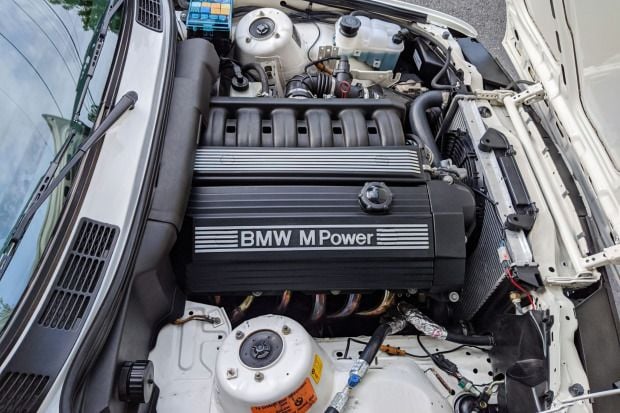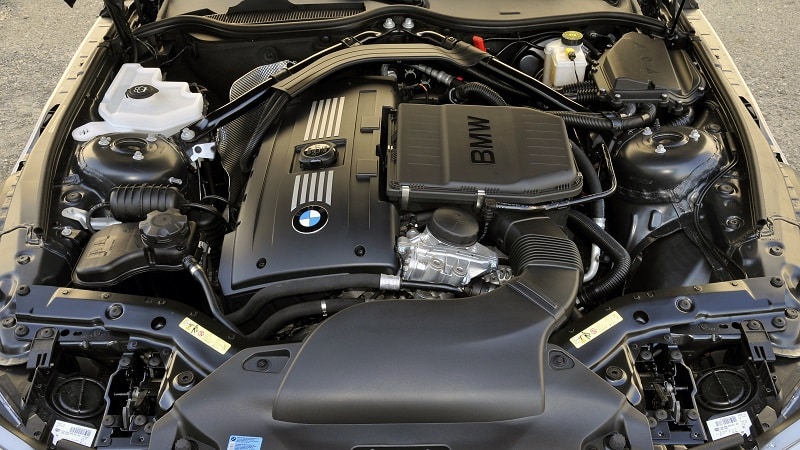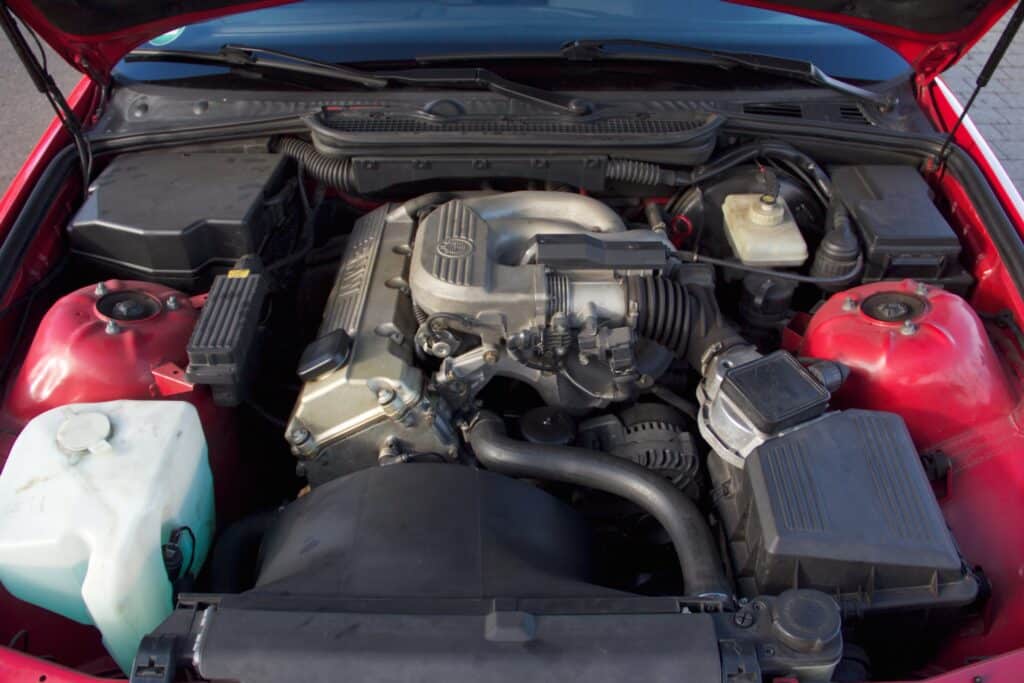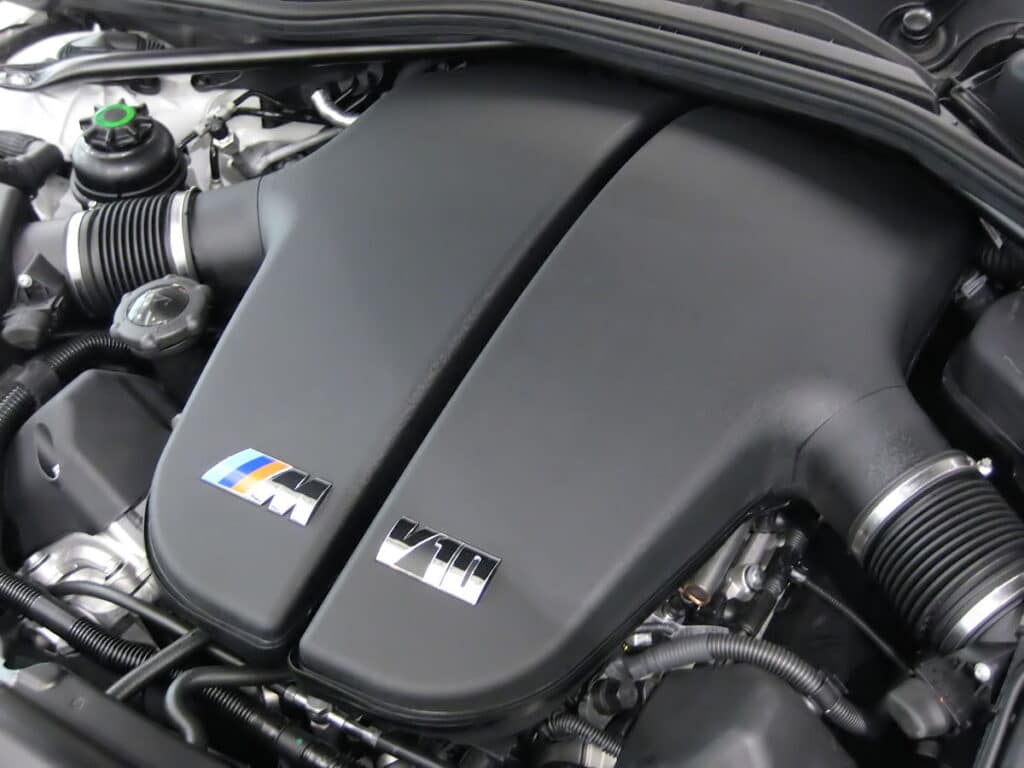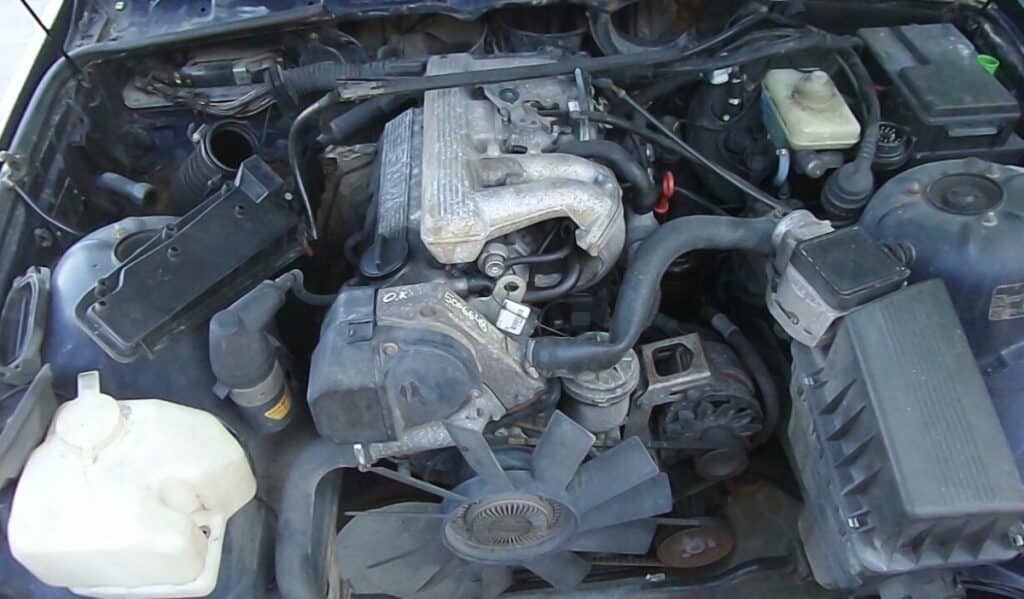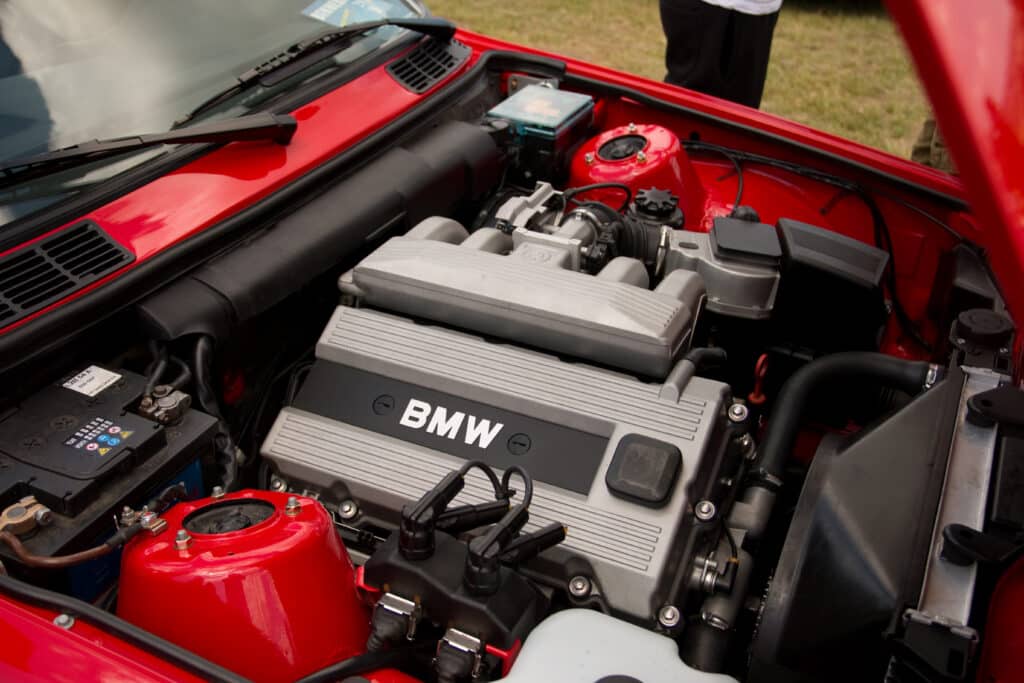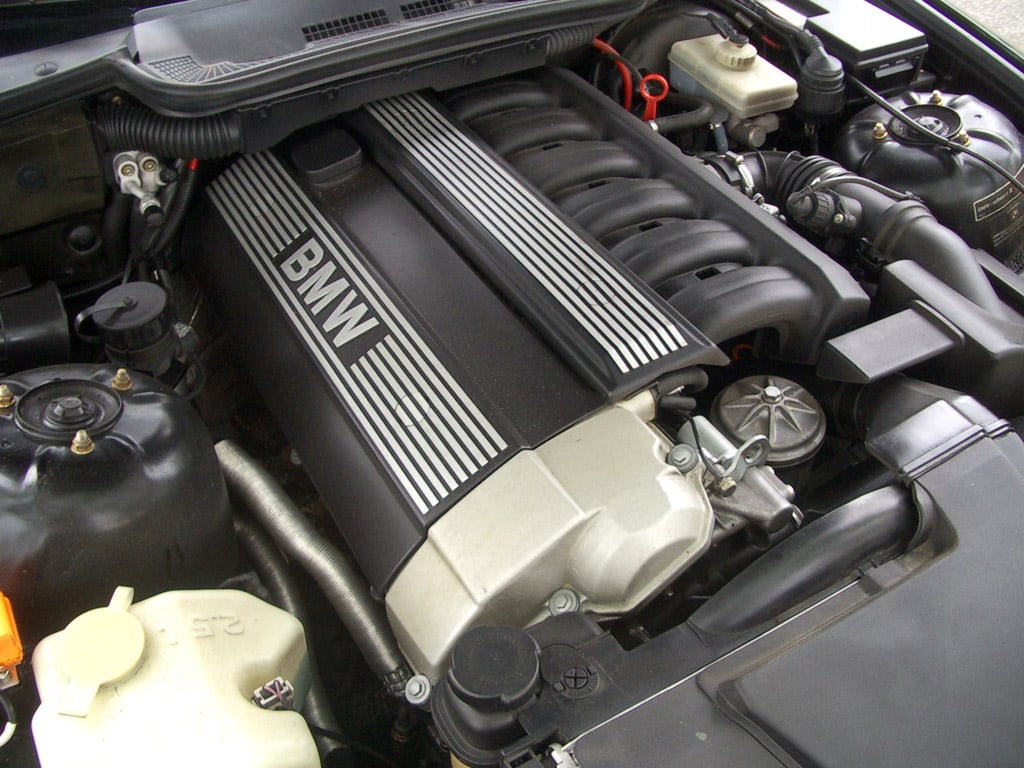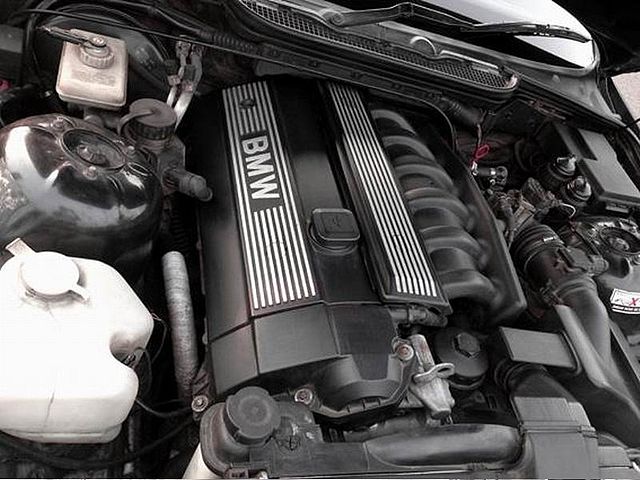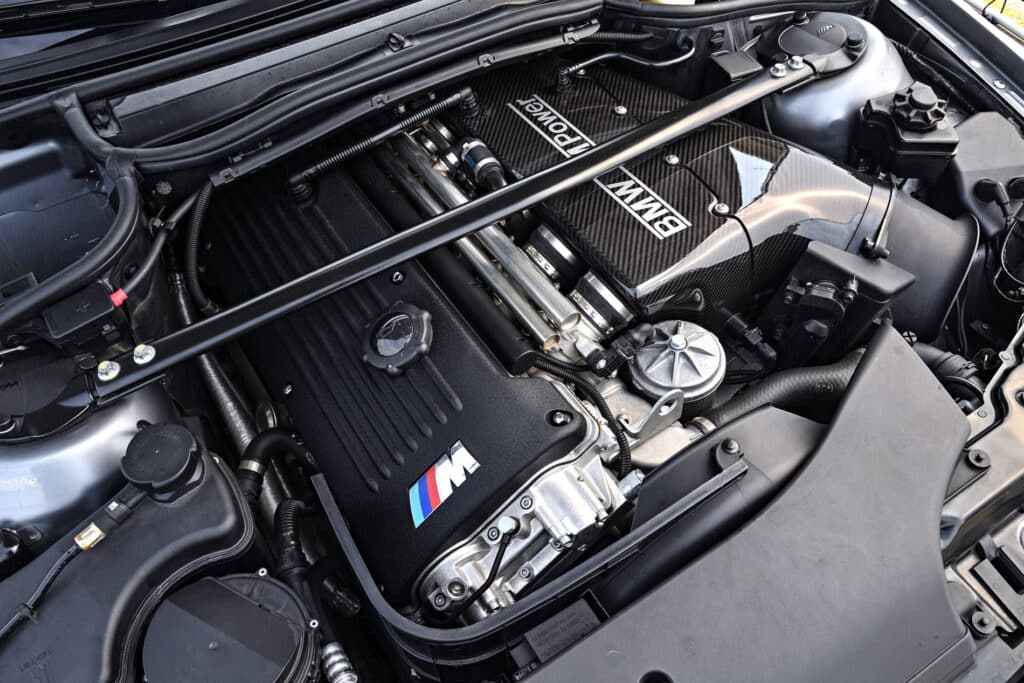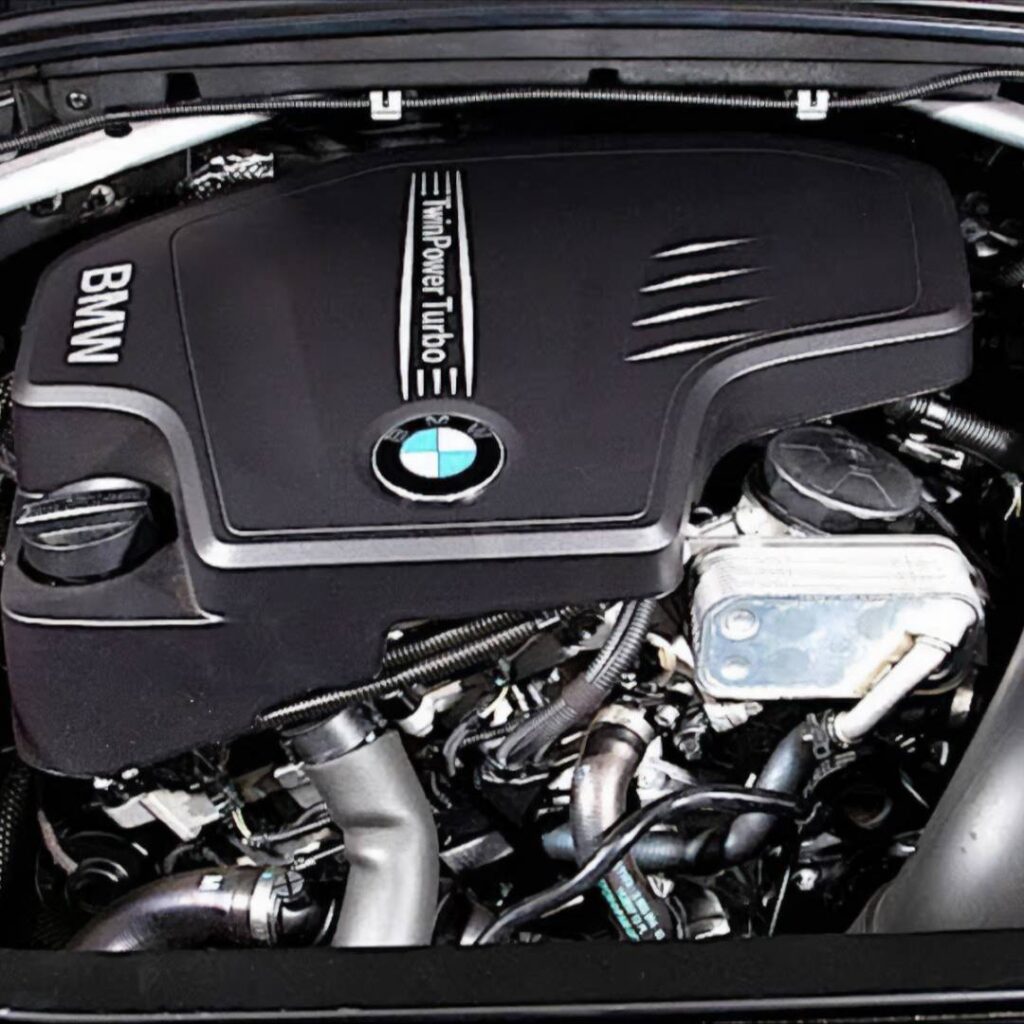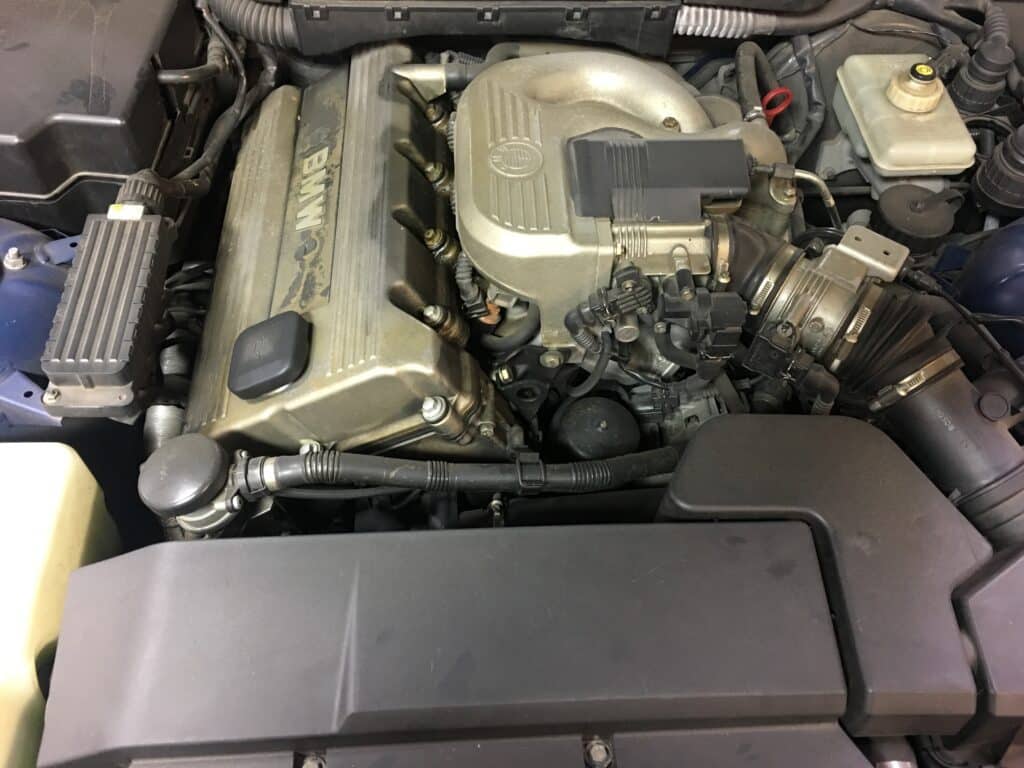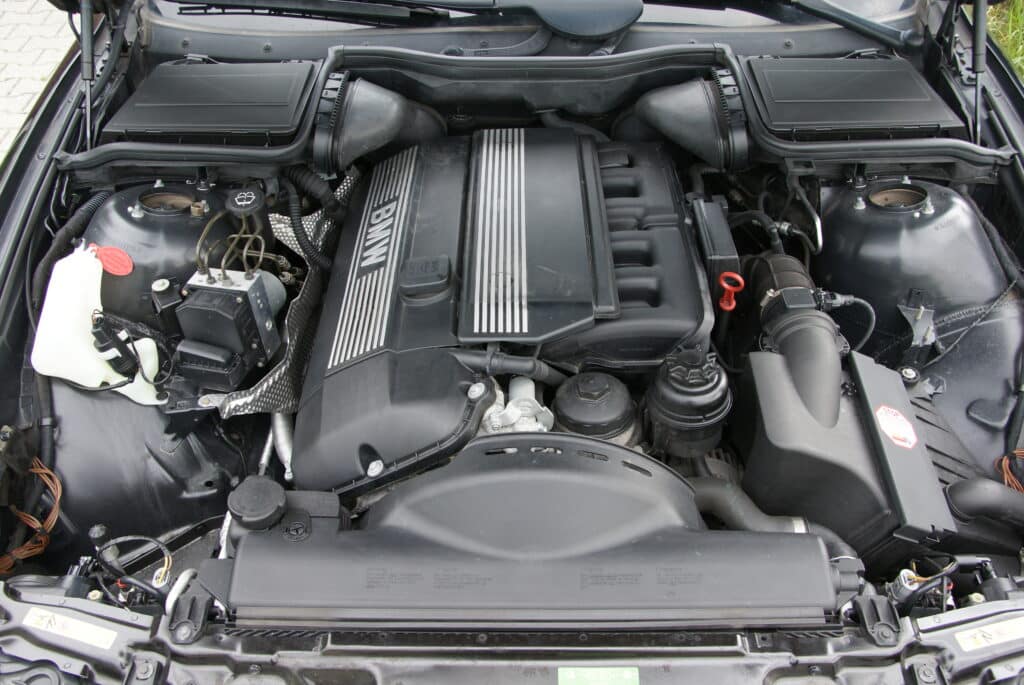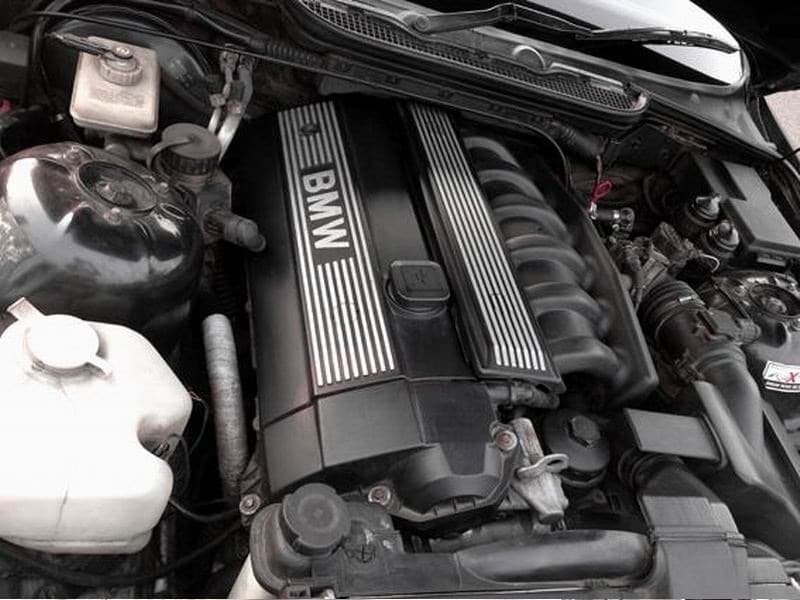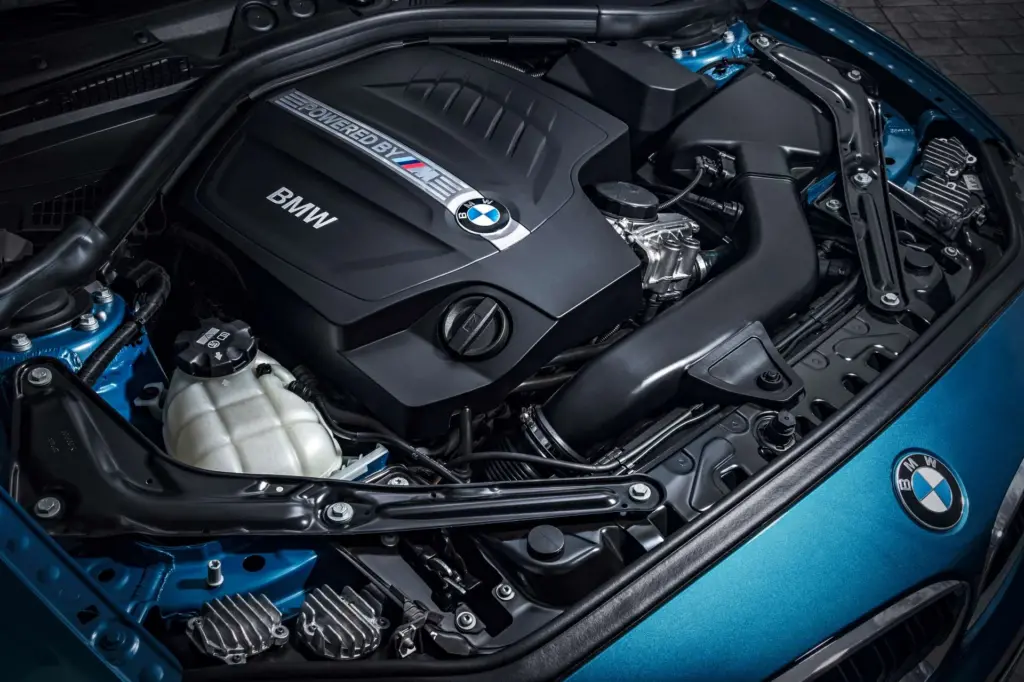The BMW M20B25 engine is a remarkable piece of engineering that has left a significant mark in the automotive industry. BMW introduced this inline-6-cylinder engine in the mid-1980s as a part of the M20 family, which is often regarded for its dependable performance and smooth operation.
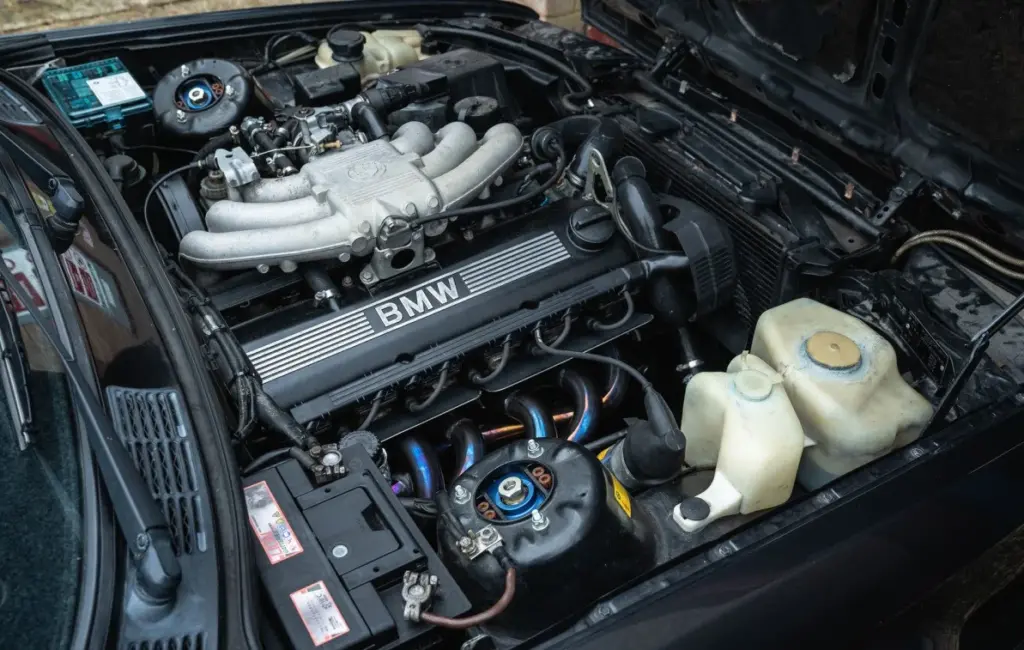
Brief History of the BMW M20B25 Engine
The M20B25 engine debuted in 1985 and was utilized in various BMW models until 1993. With a displacement of 2.5 liters, it was designed to balance performance and efficiency. The engine featured a cast iron block and an aluminum head, making it a durable yet lightweight option for the mid-range BMW models.
Over its years of service, the M20B25 gained a reputation for its reliable performance and became a beloved engine among BMW enthusiasts.
Models of BMW Where The Engine was used in
The M20B25 engine was prominently used in the BMW 325i variants, including the E30 model. It was also featured in the BMW 525i (E34) model. These vehicles were well-received, and the engine played a significant role in establishing the reputation of the 3-series and 5-series during the late 80s and early 90s.
The engine’s smooth power delivery and reliable nature made it a great fit for these models, offering a premium driving experience that many associated with the BMW brand.
The M20B25 engine’s introduction and use in popular BMW models contributed significantly to the brand’s image as a manufacturer of high-performing, reliable vehicles. Its legacy continues to be felt today, especially among BMW aficionados who appreciate the engine’s contribution to the marque’s heritage.
M20B25 Engine Specs
The BMW M20B25 engine is well-regarded for its balanced specifications, which provide a good mix of power, efficiency, and reliability.
| Specification | Detail |
|---|---|
| Compression Ratio | 9.7 (1986-1988), 9.3 (1989-1991), 8.8 (1990-1991) |
| Displacement | 2,494 cc |
| Power Output | 163 PS (1986-1988), 171 PS (1989-1991), 170 PS (1990-1991) at 5,800 rpm |
| Torque Output | 215 Nm (1986-1988) at 4,000 rpm, 226 Nm (1989-1991) at 4,000 rpm, 222 Nm (1990-1991) at 4,300 rpm |
| Fuel System | Bosch Motronic 1.1/1.3 Adaptive fuel injection (1986-1986), Bosch Motronic 1.1/1.3 Adaptive fuel injection (1987-1991) |
| Engine Block | Cast-iron |
| Cylinder Head | Aluminum, SOHC, 2 valves per cylinder (12 in total) |
| Cylinder Bore | 84.0 mm (3.31 in) |
| Piston Stroke | 75.0 mm (2.95 in) |
| Weight | Approximately 117 kg; 257 lbs (dry) |
| Compression | 8.8:1 |
The M20B25 engine has a displacement of 2.5 liters, translating to a total capacity of 2494 cc. This engine’s dimensions and layout are crafted meticulously to fit seamlessly into the BMW models it powers, ensuring an optimized performance.
The engine features an inline-6 cylinder configuration. This layout is known for its natural balancing characteristics, contributing to smooth operation and reduced vibrations, providing a refined driving experience.
The M20B25 engine adopts a SOHC (Single Overhead Camshaft) valvetrain design with 12 valves in total, 2 valves per cylinder. This design facilitates adequate airflow into and out of the combustion chambers, ensuring a responsive performance across the rpm range.
With a compression ratio of 8.8:1, the engine balances performance and fuel efficiency. This moderate compression ratio allows for a good power output while still maintaining a reasonable level of fuel efficiency.
The engine utilizes a Bosch Motronic 1.1 or 1.3 fuel injection system, ensuring precise fuel delivery for optimized combustion and efficiency.
Performance
The BMW M20B25 engine is known for its impressive performance, delivering a smooth and responsive driving experience.
Horsepower and Torque Outputs
The M20B25 engine boasts a power output of approximately 168 horsepower at 5,800 rpm and a torque output of 164 lb-ft (222 Nm) at 4,300 rpm. These figures provide a strong indication of the engine’s ability to deliver power efficiently across a broad rpm range.
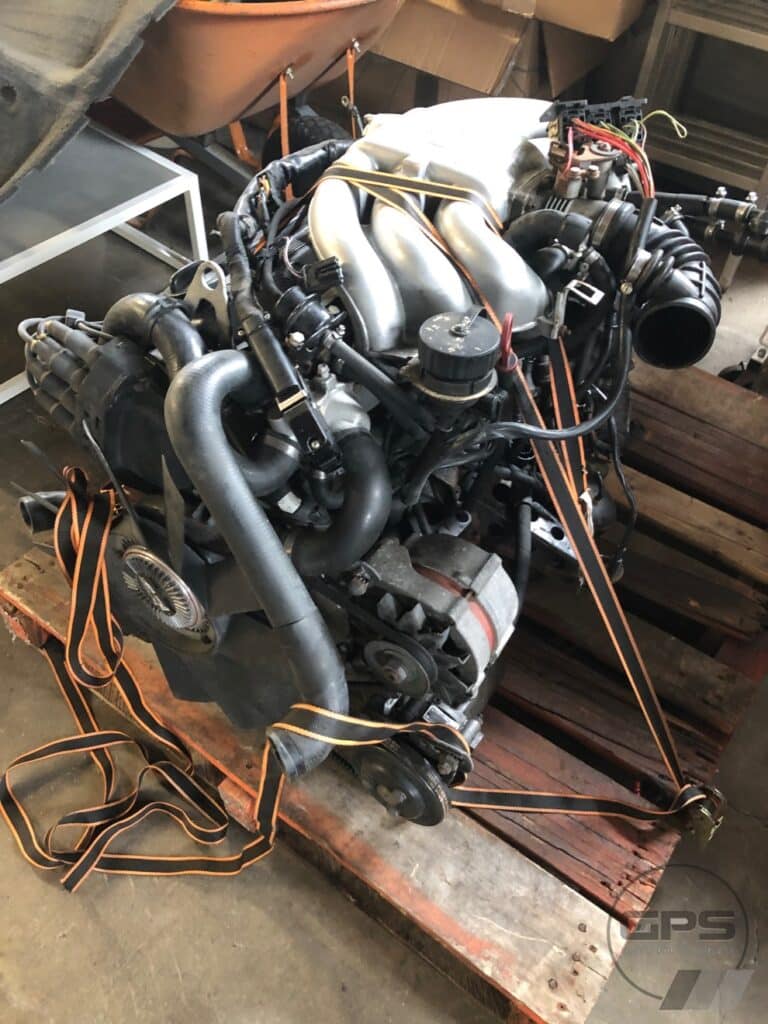
RPM Range
The engine operates effectively within a wide RPM range, with a redline situated around 6,500 rpm. This broad range allows for a versatile performance, accommodating different driving conditions and styles. The engine’s torque curve is relatively flat, ensuring consistent power delivery throughout the RPM range.
Engine Management System
The engine employs a Bosch Motronic 1.1 or 1.3 engine management system, depending on the specific model and production year. This system controls the fuel injection, ignition timing, and other critical engine functions to ensure optimized performance and efficiency.
The Bosch Motronic system is known for its reliability and capability to manage engine operations accurately, contributing to the overall performance and drivability of the M20B25 engine.
BMW M20B25 Tuning
The BMW M20B25 engine performance can be enhanced through various modifications and upgrades. Here are some of the best performance upgrades and their expected power gains:
- Intake manifold modifications: Upgrading the intake manifold can improve fuel mixing and power. A 3 or 5 angle valve job can also be beneficial.
- ECU maps and tuning: Modifying the ECU maps and tuning the engine can help optimize performance and power output. Some aftermarket ECU chips can provide additional power gains, depending on the specific engine variant.
- Camshafts: Upgrading to a performance camshaft can increase horsepower and torque at all RPMs in street applications. For example, a 272/272 grind can provide a significant power gain.
- Stroker build: A stroker build can provide a power gain of up to 20 HP in its cheapest iteration up to 40 HP, if you invest in more expensive modifications.
- Longtube headers: Longtube headers can provide a power gain of 5-14 HP, but they sacrifice some low-end torque. A complete exhaust system is also required for optimal performance.
- M5x or S5x swap: Swapping in an M5x or S5x engine can provide a significant power gain, but it is a more extensive and expensive modification.
- Turbocharger: Turbocharging the M20B25 can provide a substantial power gain, but it is a more complex and expensive modification.
Fuel Consumption
The BMW M20B25 engine, when fitted in the E30 models, was rated at an average fuel consumption of 18 MPG in the city and 22 MPG on the highway. Factors affecting fuel efficiency include the driving style, vehicle load, tire pressure, use of air conditioning, and maintenance condition of the vehicle.
For better fuel efficiency, it’s advisable to adhere to a regular maintenance schedule, drive smoothly, and avoid carrying excess weight.
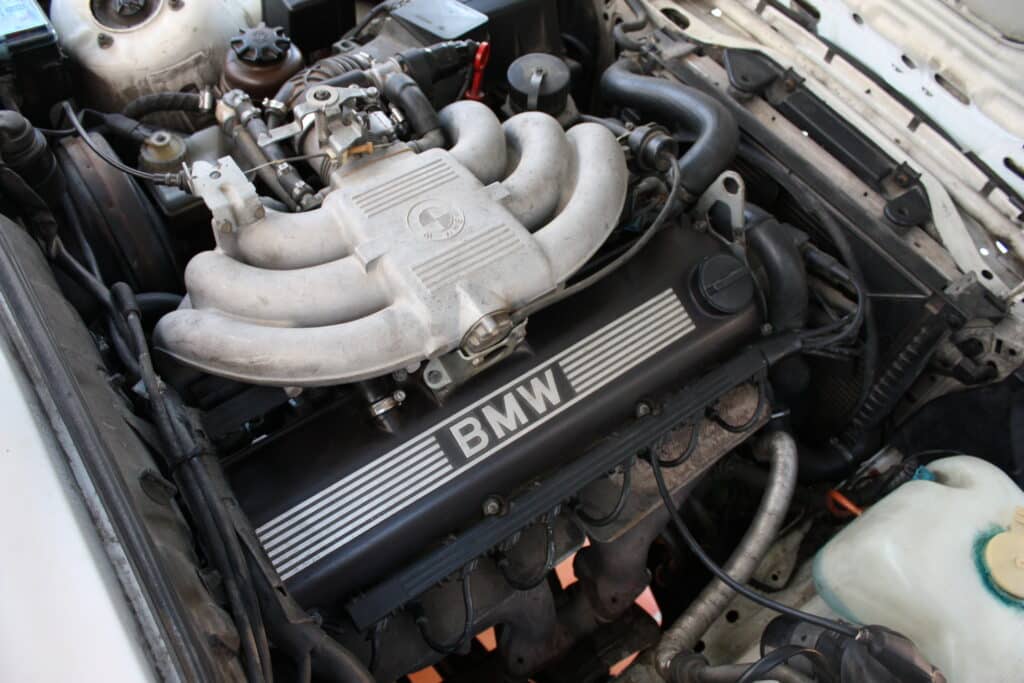
Oil Capacity and Type
For the BMW M20B25 engine, it’s recommended to use quality SAE 20W-50 conventional oil or 5W-40 synthetic oil. These oils provide the necessary lubrication and protection for the engine components across various temperatures.
The oil capacity for the BMW M20B25 engine is 4.25 liters (4.5 quarts) when equipped with an oil filter.
For maintaining optimum engine performance and longevity, it’s advisable to change the oil every 3,000 to 5,000 miles or at least once a year, whichever comes first.
Cooling System
It’s advisable to use a BMW-approved antifreeze/coolant for the BMW M20B25 engine, such as a glycol-based coolant mixed with water in a 50:50 ratio.
The coolant capacity for the BMW M20B25 engine is approximately 10.5 liters (11.1 quarts).
It’s recommended to replace the coolant every 2 to 3 years or 30,000 to 40,000 miles, whichever comes first, to ensure the cooling system operates efficiently.
Timing Belt Or Chain?
The BMW M20B25 engine utilizes a timing belt to synchronize the engine’s operations.
Maintenance recommendations for the timing system:
- Replace the timing belt every 60,000 to 70,000 miles to prevent any potential engine damage.
- Inspect the timing belt tensioner and pulleys during the belt change and replace them if necessary.
- It’s advisable also to check the water pump during the timing belt replacement and replace it if there are signs of wear or leakage, as the timing belt drives the water pump in the M20B25 engine.
BMW M20B25 Engine Problems
The BMW M20B25 engine is reliable, but like any other engine, it has its own set of problems. Here are some of the most common BMW M20B25 engine problems:
- Overheating: The M20B25 engine is prone to overheating, which a malfunctioning cooling system45 can cause.
- Timing belt and tensioner roller: The timing belt and tensioner roller need to be inspected regularly, as a broken timing belt can cause valve bending and even destruction of the pistons.
- Camshaft beds: M20B25 engines with high mileage (over 200,000 km) may wear out the camshaft beds, which can cause engine problems.
- Oil leaks: The M20B25 engine is known to develop oil leaks, which various factors, including worn gaskets, seals, and valve covers can cause.
- Fuel injection system: The fuel injection system can develop problems over time, which can cause poor engine performance, rough idling, and decreased fuel efficiency.
It is essential to perform regular maintenance and inspections to prevent or address these problems. Always consult with a professional or a knowledgeable technician before making any repairs or modifications to ensure optimal performance and reliability.
Suggested Troubleshooting and Repairs
- Regular Inspection: Regularly inspect the timing belt, coolant system, and oil seals to prevent major issues.
- Timely Maintenance: Adhere to the maintenance schedule, especially for the timing belt replacement and coolant system maintenance.
- Quality Parts: Use quality or OEM parts for repairs to ensure longevity and reliable performance.
Long-term Reliability
The BMW M20B25 engine is known for its long-term reliability when maintained properly. Its cast-iron block and simple design contribute to its durability.
Common Maintenance Requirements
- Regular oil changes with the recommended oil type.
- Timely replacement of the timing belt, tensioners, and pulleys.
- Regular inspection and maintenance of the cooling system to prevent overheating.
- Keeping up with regular inspections to catch and fix small issues before they turn into major problems.
By adhering to these maintenance practices, owners can expect a long service life from their M20B25 engine.
FAQs
- What is the power output of the BMW M20B25 engine?
- The M20B25 engine produces a power output ranging from 163 to 171 horsepower depending on the model year.
- What is the torque output of the BMW M20B25 engine?
- The torque output ranges from 215 Nm to 226 Nm depending on the model year.
- What is the displacement of the BMW M20B25 engine?
- The engine has a displacement of 2,494 cc.
- What are the common problems associated with the BMW M20B25 engine?
- Common problems include timing belt failure, coolant leaks, and oil leaks.
- What are the maintenance recommendations for the BMW M20B25 engine?
- Regular oil changes, timely replacement of the timing belt, and regular inspection and maintenance of the cooling system are recommended.

